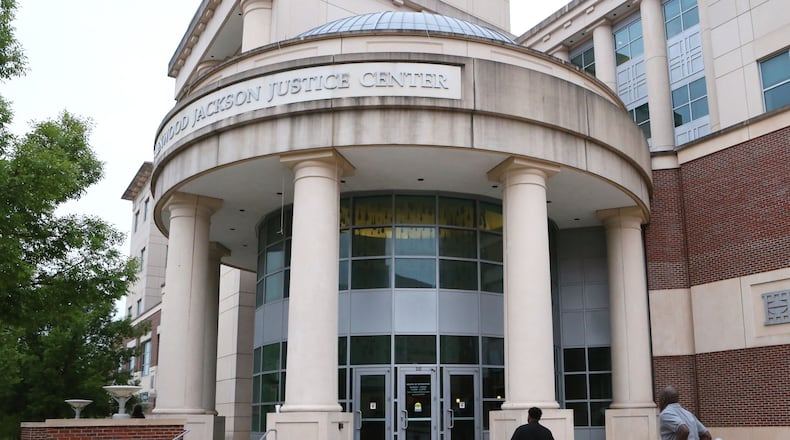The number of people who did not show up for scheduled court dates in Atlanta has increased in the years since the city eliminated the cash bond requirement for non-violent offenders, Atlanta’s chief judge said Thursday.
The bail reform ordinance, championed by Mayor Keisha Lance Bottoms and passed unanimously by the City Council in 2018, is a large reason why the Atlanta City Detention Center is now mostly empty. But city officials, including Christopher Portis, the chief judge of the Atlanta Municipal Court, cautioned against making the claim that the bond ordinance is the sole reason the failure-to-appear rate went up.
Portis presented the data to members of the City Council as part of a virtual work session about the jail and court. It came two weeks after members of Bottoms’ administration presented a plan for closing the detention center and moving booking and processing functions to the city courthouse.
The Municipal Court typically handles minor traffic violations, misdemeanor criminal offenses and city ordinance violations.
Bottoms’ proposal for closing the jail does not include tweaking the bail ordinance, which was lauded by criminal justice reform advocates. But it was a main point of discussion during Thursday’s meeting.
Portis presented charts showing the number of people who failed to appear for a court hearing jumped from about 16,500 in 2017 to 22,000 in 2018, the year the ordinance went into effect. In 2019, over 38,000 people missed court dates.
Atlanta Chief Operating Officer Jon Keen said during the meeting that the bail reform ordinance, which eliminated cash bonding, aimed to help low-income people who were charged with minor offenses, but nonetheless remained in jail for weeks or even months because they could not afford bond. A deeper analysis would be needed before being able to prove that the change in the law directly caused more people to miss their court dates, Keen said.
“It’s important to remember,” he said, “that signature bonds do not remove the penalty from the offense.”
Councilman Michael Julian Bond said the bail reform ordinance is “a piece of crap,” despite having voted to approve it in 2018. “It is not a very good law.”
The City Council did not take any votes or formal action during the work session, which featured two hours of public comment from residents. Most of the comments urged the council to close the jail.
The Council members also discussed Bottoms’ proposal to retrofit part of the Municipal Court to hold detainees, in order to close the jail. Portis was asked if he has had in-depth conversations with administration officials about the possible changes to the courthouse.
“I haven’t been involved with the design phase ... at all up to this point,” the judge said. “Having the opportunity to provide insight and ideas about how the space will actually be used is probably a very needed and worthy conversation to have.”
Keen said the administration plans to get Portis’ input when discussing specifics about design and security moving forward. As the city’s chief judge, Portis did not take a stance on the jail or bond issues.
“It’s clear to me that there are some things that we need to do better here,” he said.
An image that was brought up during the meeting showed possible additions and renovations to the court, but Keen said that is one of several possible design concepts.
In order to close the jail, Bottoms’ office has also proposed eliminating a number of jail employees and spending that money on programs to reduce bookings with pre-arrest diversion programs. The proposal also encourages ticketing instead of arresting for some low-level, non-violent charges.
The plan for closing the jail was originally met with hesitation from several Council members who wanted to city to take a closer look at the possibility that Atlanta could sell the jail to Fulton County. The new county sheriff, Pat Labat, publicly proposed that option during his first week in office.
Leaders of the public safety committee said they wanted to hold several more meetings before voting on the mayor’s proposal. A Council work session with Labat and new Fulton District Attorney Fani Willis is scheduled for Feb. 18 at 1 p.m.
About the Author
The Latest
Featured


